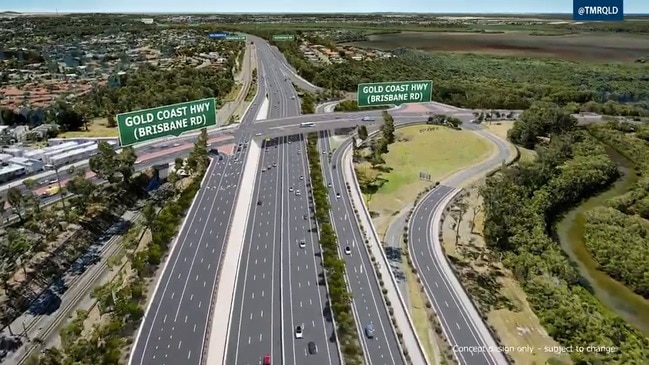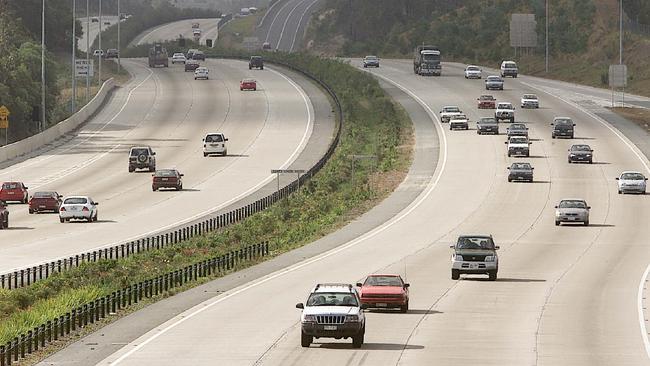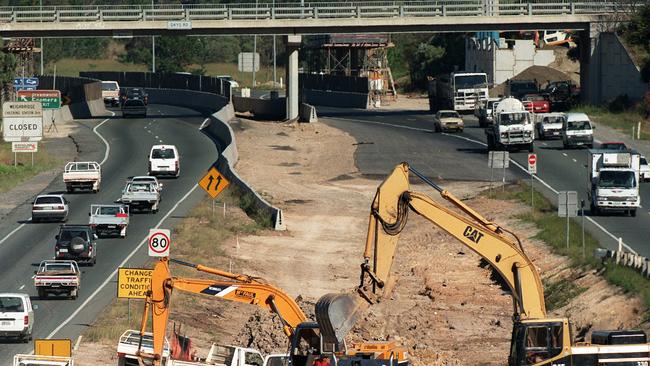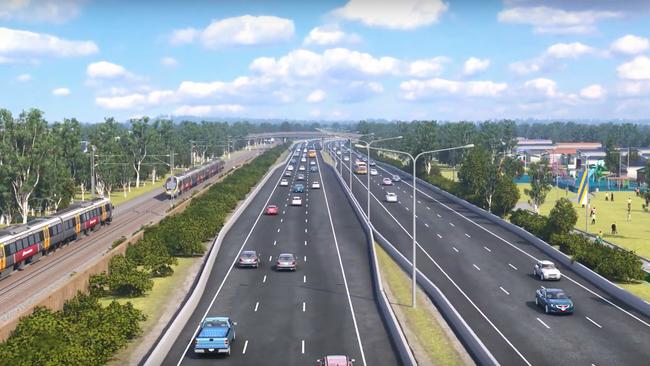Revealed: why residents do not want the Coomera Connector to be a concrete highway like the M1
The Department of Transport and Main Roads has been warned residents living near the route of the Coomera Connector will sue for compensation if an important design issue is not dealt with.

Gold Coast
Don't miss out on the headlines from Gold Coast. Followed categories will be added to My News.
THE State Government is being warned it will be sued for compensation if it uses concrete for the surface of the Coomera Connector, repeating the noise disaster caused by the eight-lane Pacific Motorway.
Gaven residents on acreage blocks near the M1 have staged an unsuccessful fight across several decades to get noise barriers despite recording noise levels at 73 decibels, above the 68 limit set as a Transport Department maximum.

READ MORE
WHAT LOCALS THINK OF THE COOMERA CONNECTOR
THE MISSING PIECE OF THE COOMERA CONNECTOR
Helensvale property owners who will have the Coomera Connector even closer to their homes believe the Government must learn the lessons from the M1 build.
“It is vital not to use concrete surfaces, but asphalt. There are special sound-dampening configurations available now. It’s also important that noise barriers are continuous and uninterrupted,” a resident leader told the Bulletin.
Lawyer Lex Bell, in a letter on behalf of the property owners, warned Transport Minister Mark Bailey that noise levels and flooding were never addressed with the M1 and the same issues could be repeated with the Coomera Connector during its first stage build from Nerang to Coomera.
“The surface of the road must not be hard cement which causes harsh noise pollution,” Mr Bell wrote.
“There are modern noise reducing asphalts available on the market. All of these suggestions seem to have fallen on deaf ears.”
The retired city councillor referred Mr Bailey to the warnings contained in The Pacific Motorway Report issued by the Queensland Ombudsman in March 2007.

“That publication indicated it was then too late to implement other road surfaces designed to minimise noise but confirmed that this would be have been possible before the road was constructed,” Mr Bell wrote.
He warned his clients would pursue compensation if TMR did not consider measures designed to be higher than the current threshold for noise controls.
“They are determined to safeguard their established lives and will hold the government responsible for any deleterious consequences,” Mr Bell wrote.
Helensvale-based councillor William Owen-Jones, at a briefing with TMR South Coast regional director Paul Noonan asked about how much offset planting would be required on the route only to be told it was part of “ongoing technical assessment”.
Robina-based councillor Hermann Vorster asked if the department was only looking at noise barriers and not other measures.

Mr Noonan admitted some measures for noise cancelling technology and increased vegetation had “a whole of life cost” which had not been determined yet.
“We will be looking throughout this project at the most appropriate measures for noise attenuation,” he said.
“Where possible we try to incorporate low noise pavements which do reduce the noise considerably, however we can’t eliminate noise from what we do.”
TMR deputy Director General in a response said noise was the number one concern raised by the community during consultation in late 2019, prompting a second round of consultation.
From July until September 2020, a noise assessment was undertaken at 45 locations along Stage 1 of the corridor between Coomera and Nerang to establish baseline noise levels.
“Predicted noise levels from the Coomera Connector will then be modelled and assessed against the baseline noise levels to determine where noise mitigation measures such as noise barriers need to be included in the design. In planning for the Coomera Connector, TMR has undertaken extensive investigations through the project corridor and surrounding land,” the deputy Director General said.



